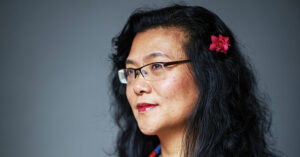
Inequality has been one of China’s central problems, writes author and journalist Zhang Lijia in the South China Morning Post. There is no shortage of efforts to fix it, she argues, and while China has dealt with poverty successfully, getting to common prosperity, as it is called, seems much harder to achieve.
Zhang Lijia:
Last month, Panzhihua, a city in western China’s Sichuan province, announced this would be its “breakthrough” year in establishing itself as a common prosperity pilot zone. It is following the example of Zhejiang province in the east, another such pilot zone which was set up in 2021. The idea is to push for a high-quality development that focuses on closing the economic gap between regions, between urban and rural areas, and in income.
This is encouraging news, but will such efforts work? Will there be more pilot zones like these? Will China really achieve common prosperity, or is it mainly a political slogan? The truth is still emerging.The concept of common prosperity is not new. It first appeared in 1953 during the Mao era as he pushed China towards socialist collectivisation.
Since 1978, some people and regions have indeed become rich. China has transformed from one of the world’s poorest countries to its second-largest economy, and from a relatively equal society to one of the most unequal in the world.
The structural flaws inherent in China’s political system – from state-controlled capitalism to corruption – have all contributed to the problem. The top 10 per cent income share rose from 27 per cent in 1978 to 41 per cent in 2015, approaching levels seen in the United States, according to research by economist Thomas Piketty and his colleagues.Xi clearly realises the risk of such income and wealth disparities, which could stifle growth and erode confidence in the leadership. Defining common prosperity is complicated as it has many implications and associated aspirations. In one sense, China’s pursuit of common prosperity seeks to build up the middle class so it can become more of an engine of consumption.
More in her opinion piece at the South China Morning Post.
Zhang Lijia is a speaker at the China Speakers Bureau. Do you need her at your meeting or conference? Do get in touch or fill in our speakers’ request form.
Are you looking for more political experts at the China Speakers Bureau? Do check out this list.